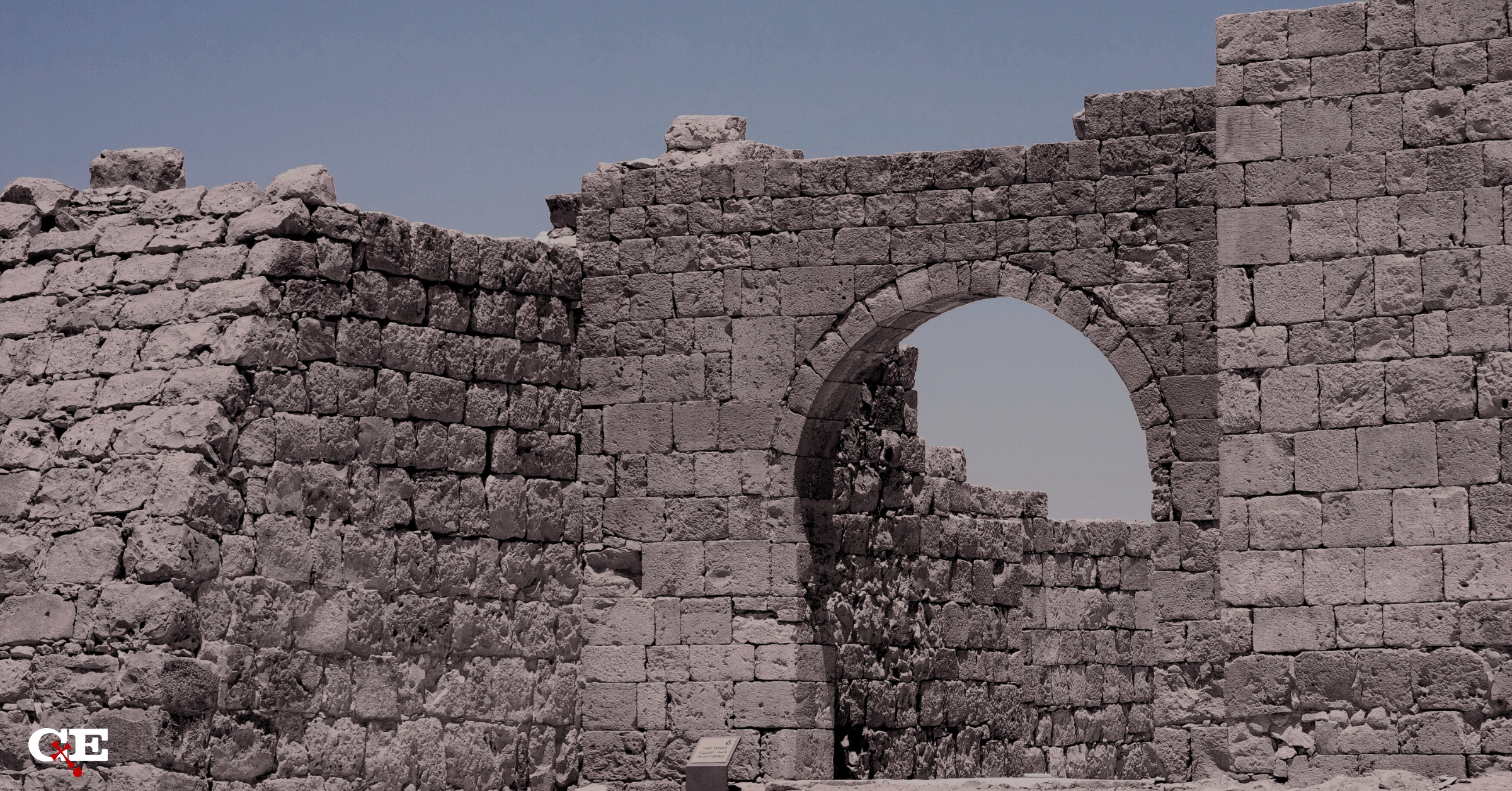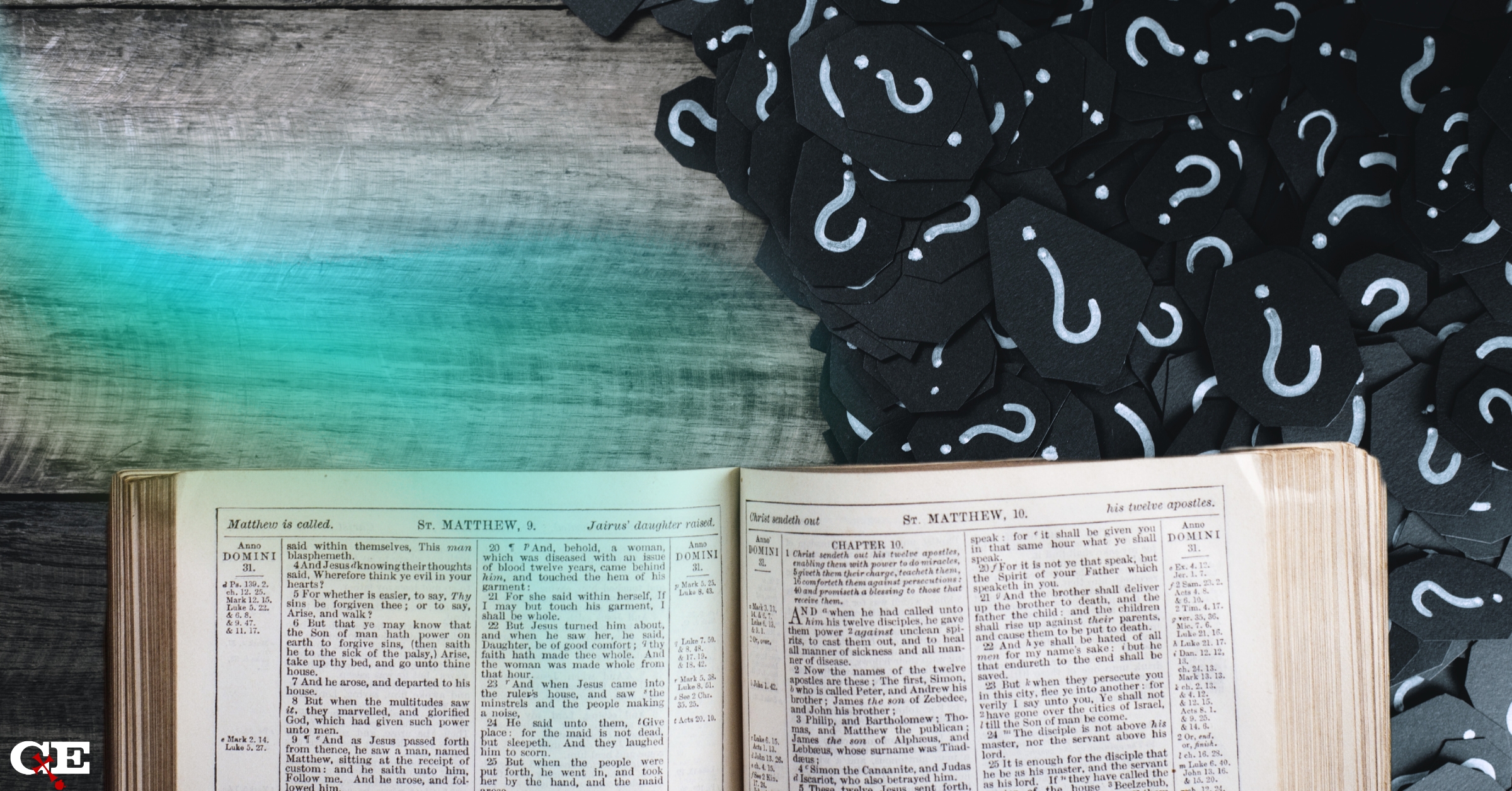Can stones give you insights into the past? What do they tell you? When I encountered the Rosetta Stone at the British Museum, I was surprised that a stone could say so much. Archaeological pieces like this provide a witness to a society in time.

The Rosetta Stone contributes to the witness of the Bible. It also allows us to gain insights into how ancient cultures lived and experienced life. Archaeologist Randall Price states, “The Bible cannot be proved or disproved by archaeology. . . however, archaeology can bring historical confirmation to the historical statements in the text of the Scripture.” [i] Although archaeology cannot provide certainty of the Bible, it is a witness to the Bible, it contributes to its reliability, and it is a voice offering evidence to confirm the claims of the Bible.

Figure 1The Rosetta Stone – Source: Hans Hillewaert, CC BY-SA 4.0, https://commons.wikimedia.org/w/index.php?curid=3153928
Archaeology Reveals Mosaic Authorship as Plausible
Many people believed Moses could not have written the Pentateuch (the first five books of the Bible) because writing did not go back that far in time. In 1799, however, near Rosetta, Egypt, General Napoleon Bonaparte’s officer discovered the famous Rosetta Stone. After the defeat of Napoleon, it was taken by the British and placed in the British Museum in 1802. It cites the celebration of the first anniversary of Pharoah Ptolemy V in 195 BC. The intriguing factor is that the citation on the stone is written three times in three different languages: Egyptian Hieroglyphics, demotic Egyptian, and Greek capital letters. The Greek text could be read by Greek New Testament scholars, who helped crack the code to hieroglyphs. This revealed the hieroglyphics as more than signs but an actual readable language. The discovery of the bilingual text of the Rosetta Stone provides evidence that readable language existed during the time of Moses. Therefore, Moses could have written the Pentateuch.
Archaeology Reveals Israel as A People
Another discovery that contributes to the witness of the Bible is the Merneptah Steele. It was unearthed in Thebes, Egypt, and could be the earliest reference to the people of Israel outside of the Bible. The black granite was inscribed to honor the various gods and the king’s achievements. “The stela concludes with a short list of cities and people in Canaan also defeated by the king: it includes the phrase ‘Israel is laid waste and his seed is not. Egyptologists agree that of the eight names on the stela, seven refer to a land while the reference to Israel refers to a people group, indicating that at this time Israel was not yet settled in a land it could call its own.” [ii] The Merneptah Stela discloses that by 1209 BC, Israel was described as a people group that fits the period of Judges.
Archaeology is a Contribution to the Reliability of the Bible
Archaeology may not be able to prove the Bible with certainty, but it provides evidence for the reliability of the Bible. The Rosetta Stone and the Merneptah both support the Bible’s reliability. The Rosetta Stone suggests that Moses could write the Pentateuch, while the Merneptah Stele offers support that Israel was an organized nation. [iii] Many other discoveries support the Bible’s reliability, especially after King David’s time, that can be further studied. The Bible has the historical support to assure its reliability.
Understanding the evidence supporting the Bible’s reliability can encourage confidence when reading about God and His witness to the nations. The Bible claims to be the “word of truth” in passages such as “Never take your word of truth from my mouth,” located in Psalm 119:43. Also, in 2 Timothy, which states, “Do your best to present yourself to God as one approved, a worker who does not need to be ashamed and who correctly handles the word of truth.” The Bible was given to people so that we might know God and the way of salvation through Christ. Therefore, archaeology can contribute to the witnessing of the Bible so that people can trust it and know the one true God.
References:
[i] Randall Price, Handbook of Biblical Archaeology (Grand Rapids, MI: Zondervan, 2017), 26.
[ii] Clive Anderson and Brian Edwards, Evidence for the Bible (England: Day One Publications, 2014), 32.
[iii] [Editor’s note: According to the Bible, Israel was organized under judges around that time, but not under a king. That monarchic period wouldn’t happen till the time of King Saul and David, around 1000 BC, long after the time of Merneptah in Egypt. Israel was a distinct and organized people, even in the time of the judges, and in that sense were a nation.]
Recommended Resources:
What I Discovered Digging in Jerusalem by Eli Shukron (with Frank Turek) (DVD) (Mp4 Download)
The Top Ten Reasons We Know the NT Writers Told the Truth mp3 by Frank Turek
Can All Religions Be True? mp3 by Frank Turek
Debate: Does God Exist? Turek vs. Hitchens (DVD), (mp4 Download) (MP3)
Deanna Huff is a wife and mother. She is passionate about teaching others to share and defend their faith, drawing on 25 years of experience in the field. Her publications include contributing chapters to Why Creationism Still Matters and Strong Faith. She currently works at the Museum of the Bible. She has also led many seminars for the Baptist General Convention of Oklahoma, the Oklahoma Ladies Retreat, and the State Evangelism Conference. In addition, she taught high school students for ten years at Christian Heritage Academy, covering subjects such as Bible, Universal History, Apologetics and Philosophy. Deanna earned a Ph.D. in Theology and Apologetics at Liberty University. She holds a Master of Theology in Apologetics and Worldview from Southern Baptist Theological Seminary, a Master of Divinity with Biblical Languages from Southwestern Baptist Theological Seminary, and a Bachelor of Arts from the University of Oklahoma. Deanna is an active member of Capitol Hill Baptist Church where she co-hosted a podcast called The Analysis with Pastor Mark DeMoss. She also co-hosted a podcast with her daughter Ellie Huff called but why should i care. She and her husband teach an adult Sunday school class, discipling others in the faith.
Originally posted at: https://bit.ly/41Zc4bl


